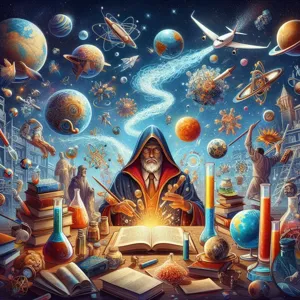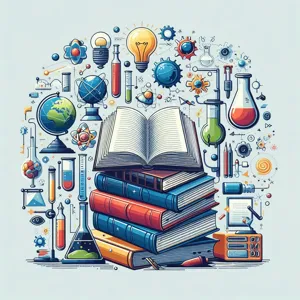Understanding human behavior is a fascinating journey that delves into the intricacies of why we think, feel, and act the way we do.
From our deepest motivations to the subtle influences of our environment, the science of human behavior offers insights that can transform our perspective on relationships, decision-making, and even our own self-awareness. Whether you’re a curious reader, a budding psychologist, or someone simply seeking to improve your interpersonal skills, exploring the right literature can provide valuable knowledge and practical tools. In this post, we present the top 10 books that unlock the secrets of human behavior, each expertly blending research with real-world applications. Join us as we dive into a curated selection of transformative reads that promise to illuminate your understanding of the complexities of the human mind and enhance your interactions with others.
1. Introduction: Understanding Human Behavior

Understanding human behavior is a complex yet fascinating endeavor that intertwines psychology, sociology, anthropology, and neuroscience. At its core, human behavior encompasses the myriad ways in which individuals think, feel, and act, shaped by their environments, experiences, and biological predispositions. As we navigate our daily lives, our behaviors are influenced by a multitude of factors—cultural norms, social interactions, emotional states, and even our genetic makeup.
To truly grasp the intricacies of why we do what we do, we must delve into the underlying mechanisms that drive our actions. This exploration not only helps us better understand ourselves but also enhances our ability to connect with others. The significance of this understanding extends far beyond personal relationships; it influences areas such as marketing, education, leadership, and mental health.
In this blog post, we will explore ten essential books that serve as gateways to unlocking the science of human behavior. Each book offers unique insights and evidence-based research, providing readers with practical tools and knowledge to better understand the motivations and actions of themselves and those around them. Whether you are a psychology enthusiast, a professional in a people-centric field, or simply curious about the human experience, these books will illuminate the pathways to deeper understanding and engagement with the world of human behavior. Join us as we embark on this enlightening journey!
2. The Importance of Reading on Behavioral Science
Reading about behavioral science is not just an academic pursuit; it’s a gateway to understanding ourselves and the world around us. In a society where decisions are made at lightning speed and emotions often dictate actions, delving into the intricacies of human behavior can provide invaluable insights. Books in this genre unravel the complex web of motivations, biases, and social influences that govern our thoughts and actions, empowering us to make more informed choices in both our personal and professional lives.
Understanding behavioral science is crucial for various fields, from marketing and psychology to education and healthcare. These books equip readers with the tools to analyze and interpret behaviors, fostering empathy and enhancing communication skills. By exploring the cognitive processes that underlie decision-making, readers can better navigate social dynamics, whether in a boardroom negotiation or a casual conversation with friends.
Moreover, engaging with this subject matter nurtures critical thinking skills. Readers learn to question assumptions, recognize patterns in behavior, and even predict outcomes based on psychological principles. This not only aids in personal growth but also cultivates a deeper appreciation for the diverse experiences that shape human interactions.
In a world increasingly driven by data, understanding the human element behind statistics is paramount. The importance of reading on behavioral science lies in its potential to bridge the gap between numbers and narratives, reminding us that behind every decision, there’s a story waiting to be understood. By immersing ourselves in this captivating field, we unlock the secret to better relationships, improved emotional intelligence, and ultimately, a more harmonious society.
3. “Thinking, Fast and Slow” by Daniel Kahneman
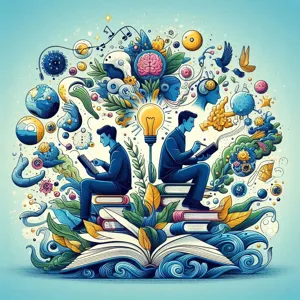
“Thinking, Fast and Slow” by Daniel Kahneman is a compelling exploration into the dual processes that govern our thoughts and decisions. Winner of the Nobel Prize in Economic Sciences, Kahneman, a psychologist, delves into the intricacies of the human mind, categorizing our thinking into two distinct systems: System 1, which is fast, intuitive, and often emotional, and System 2, which is slower, more deliberate, and analytical.
Throughout the book, Kahneman presents a wealth of fascinating insights, illustrating how these two systems interact and influence our judgments, choices, and behaviors in everyday life. He masterfully blends rigorous scientific research with engaging anecdotes, making complex psychological concepts accessible to readers from all backgrounds.
One of the book’s key themes is the concept of cognitive biases—systematic errors in thinking that can affect our decisions. Kahneman highlights how these biases often lead us to make irrational choices, underscoring the importance of awareness in decision-making processes. From the anchoring effect to loss aversion, each bias is examined with clarity and depth, prompting readers to reflect on their own thought patterns and behaviors.
“Thinking, Fast and Slow” is not just a book about psychology; it is a profound journey into understanding ourselves and the forces that drive our behavior. Kahneman’s insights have significant implications for various fields, including economics, marketing, and personal relationships, making it a must-read for anyone eager to unlock the science behind human behavior. Whether you’re a seasoned psychologist, a curious novice, or simply someone looking to better understand your own mind, this book will undoubtedly challenge your perceptions and inspire deeper introspection.
4. “Predictably Irrational” by Dan Ariely
“Predictably Irrational” by Dan Ariely is a groundbreaking exploration into the hidden forces that shape our decisions, and it’s a must-read for anyone interested in the nuances of human behavior. In this engaging book, Ariely, a renowned behavioral economist, challenges the traditional notion that humans are rational actors who consistently make decisions based on logic and reason. Instead, he reveals the myriad of irrational behaviors that govern our choices, often leading us to unexpected outcomes.
Through a series of fascinating experiments and real-life examples, Ariely illustrates how our emotions, social pressures, and cognitive biases play a significant role in decision-making. From the way we perceive value and pricing to the influence of context and expectations, Ariely uncovers the underlying mechanisms that drive our often-illogical choices.
One of the most compelling aspects of “Predictably Irrational” is its accessibility. Ariely uses humor and storytelling to present complex concepts in a way that’s easy to grasp, making the book engaging for both casual readers and those with a more academic interest in psychology and economics. He draws on a wealth of examples—such as why we’re more likely to choose a free option over a discounted one, or how the mere presence of a decoy option can skew our preferences—to illustrate his points.
Ultimately, “Predictably Irrational” is not just a book about the quirks of human behavior; it’s a powerful tool for understanding the motivations behind our decisions. Whether you’re a marketer looking to better connect with your audience, a business leader aiming to enhance customer experience, or simply someone curious about the human psyche, Ariely’s insights will equip you with a deeper understanding of why we do what we do. This book is a brilliant reminder of the delightful complexity of human behavior and a valuable resource for anyone looking to unlock the science behind our seemingly irrational choices.
5. “Influence: The Psychology of Persuasion” by Robert Cialdini
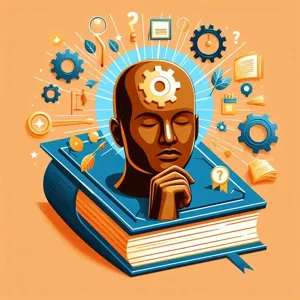
“Influence: The Psychology of Persuasion” by Robert Cialdini is a groundbreaking work that delves deep into the mechanisms of persuasion and the subtle ways in which human behavior can be influenced. First published in 1984, this classic text remains relevant today, offering invaluable insights for anyone interested in understanding why people say “yes” and how to apply these principles ethically in everyday life.
Cialdini, a social psychologist, outlines six fundamental principles of influence: reciprocity, commitment and consistency, social proof, authority, liking, and scarcity. Each principle is not merely theoretical; Cialdini supports his claims with captivating anecdotes and rigorous research, making complex psychological concepts accessible and engaging. For instance, he illustrates how the principle of reciprocity can be seen in simple acts of kindness—when someone does something for us, we’re often compelled to return the favor, sometimes to our own detriment.
The book goes beyond academic theory, providing practical strategies that can be applied in various contexts, from marketing and sales to personal relationships. Cialdini emphasizes the importance of ethical persuasion, urging readers to recognize the power they hold when influencing others. By understanding these psychological triggers, you can enhance your ability to persuade while maintaining integrity.
Whether you’re a marketer looking to boost sales, a manager seeking to motivate your team, or simply someone curious about the intricacies of human interaction, “Influence” serves as a powerful toolkit for navigating the social landscape. With its engaging writing and actionable insights, this book is a must-read for anyone aiming to unlock the science behind human behavior and master the art of persuasion.
6. “The Power of Habit” by Charles Duhigg
In “The Power of Habit,” Charles Duhigg takes readers on a fascinating journey into the science behind our daily routines and the profound impact habits have on our lives. This compelling book is not just about understanding the mechanics of habits, but also about harnessing their power to drive personal and professional change.
Duhigg introduces the concept of the “habit loop,” which consists of three key components: the cue, the routine, and the reward. By dissecting this loop, he reveals how habits are formed and how they can be reshaped. Whether you’re looking to break free from negative patterns or cultivate positive ones, Duhigg provides actionable insights that can lead to meaningful transformation.
Throughout the book, he shares intriguing case studies—from the habits of Olympic athletes to the daily rituals of successful companies—illustrating how understanding and altering our habits can lead to remarkable results. One of the most striking examples is the story of how the development of a new habit can trigger a cascade of change in other areas of life, demonstrating that small adjustments can lead to significant progress.
“The Power of Habit” is not just a manual for self-improvement; it’s an exploration of the intricacies of human behavior and the underlying neurological processes that govern our decisions. Duhigg’s engaging narrative makes complex concepts accessible, encouraging readers to reflect on their own habits and consider the potential for change.
For anyone interested in the science of human behavior and personal development, this book is an invaluable resource that offers both inspiration and practical strategies to unlock the power of habit in pursuit of a more fulfilling life.
7. “Mindset: The New Psychology of Success” by Carol S. Dweck
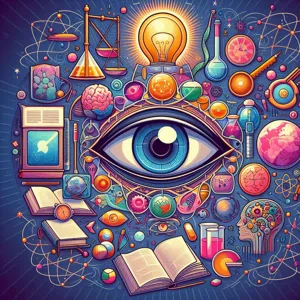
In “Mindset: The New Psychology of Success,” renowned psychologist Carol S. Dweck delves deep into the transformative power of our beliefs about our abilities and potential. This groundbreaking book introduces the concept of the fixed mindset versus the growth mindset, illustrating how our underlying beliefs shape our experiences and outcomes in life.
Dweck’s research, rooted in decades of psychological studies, reveals that individuals with a fixed mindset—who believe their talents and intelligence are static—often shy away from challenges, fearing failure and avoiding risks. In contrast, those with a growth mindset view challenges as opportunities for growth, embracing setbacks as stepping stones to success. This fundamental shift in perspective can lead to increased resilience, greater achievement, and a more fulfilling life.
Through engaging anecdotes and practical examples, Dweck demonstrates how mindset affects various aspects of life, from education and business to relationships and parenting. She provides actionable strategies for cultivating a growth mindset, encouraging readers to challenge their self-limiting beliefs and adopt a more adaptive approach to learning and development.
“Mindset” is not just a book; it’s a powerful toolkit for personal and professional growth. Whether you’re a student seeking to improve your academic performance, a leader aiming to inspire your team, or anyone looking to foster a more positive outlook, Dweck’s insights offer a profound understanding of human behavior and the limitless potential that lies within us all. This book is essential reading for anyone eager to unlock the secrets of success and harness the science of human behavior to achieve their goals.
8. “The Social Animal” by Elliot Aronson
“The Social Animal” by Elliot Aronson is a captivating exploration of the intricate web of human relationships and the forces that shape our interactions. First published in 1972, this seminal work remains a cornerstone in the field of social psychology, succinctly merging theory with engaging storytelling. Aronson’s ability to weave scientific research with real-world examples makes complex concepts accessible and relatable, allowing readers to grasp the subtleties of human behavior.
At its core, the book delves into what it means to be social creatures, examining how our thoughts, feelings, and actions are profoundly influenced by the people around us. Aronson discusses key themes such as conformity, persuasion, and group dynamics, using compelling anecdotes and experiments to illustrate his points. From the power of social influence to the intricacies of self-justification, the insights offered in this book are both enlightening and thought-provoking.
One of the standout features of “The Social Animal” is Aronson’s exploration of the concept of cognitive dissonance—the mental discomfort experienced when our beliefs clash with our actions. Through vivid examples and relatable scenarios, he elucidates how we rationalize our behaviors to maintain psychological harmony. This understanding is crucial for anyone seeking to navigate interpersonal dynamics, whether in personal relationships or professional settings.
Aronson’s engaging prose combined with his expertise invites readers to reflect on their own social experiences, prompting a deeper understanding of not just others, but themselves as well. “The Social Animal” is not just a book; it’s an invitation to explore the rich tapestry of human connections and a fundamental resource for anyone interested in unlocking the science behind why we behave the way we do. Whether you’re a psychology enthusiast or simply curious about the nature of human interactions, this book is a must-read that will leave you pondering the complexities of social behavior long after you turn the last page.
9. “Nudge: Improving Decisions About Health, Wealth, and Happiness” by Richard Thaler and Cass Sunstein
In “Nudge: Improving Decisions About Health, Wealth, and Happiness,” behavioral economists Richard Thaler and Cass Sunstein explore the fascinating interplay between human behavior and decision-making. This groundbreaking book offers insights into how subtle changes in the way choices are presented can significantly influence the decisions people make. Thaler and Sunstein introduce the concept of “nudging,” which refers to designing choices in a way that encourages individuals to make better decisions without restricting their freedom of choice.
The authors delve into various real-world scenarios, illustrating how small tweaks in the environment can lead to substantial improvements in health outcomes, financial well-being, and overall happiness. For example, they discuss how simply changing the default option in retirement savings plans can dramatically increase participation rates, nudging individuals toward a more secure financial future. They also examine how framing health-related choices—like organ donation or food options—can guide people toward healthier lifestyles.
“Nudge” is not only a compelling academic text but also a practical guide for policymakers, business leaders, and individuals seeking to maximize their decision-making potential. By understanding the vulnerabilities and biases inherent in human behavior, readers are empowered to create environments that promote better choices. This book is a must-read for anyone interested in the science of human behavior and the ways we can influence our own lives and the lives of others for the better. Whether you’re a student of psychology, a professional in the field, or simply someone looking to understand the nuances of choice, “Nudge” provides the tools to harness the power of behavioral economics effectively.
10. “Drive: The Surprising Truth About What Motivates Us” by Daniel H. Pink
In “Drive: The Surprising Truth About What Motivates Us,” Daniel H. Pink challenges conventional wisdom about what truly drives human behavior, particularly in the realms of work and productivity. Drawing from decades of research in psychology and behavioral economics, Pink introduces readers to the concept of intrinsic motivation, which he argues is far more effective than extrinsic rewards like money or praise.
Pink distills motivation into three key elements: autonomy, mastery, and purpose. Autonomy refers to our innate desire to be self-directed. People thrive when they have the freedom to choose how they work and what they work on. Mastery speaks to the urge to improve at something that matters, fostering a sense of competence and achievement. Lastly, purpose connects our actions to a greater cause, instilling a sense of meaning in our endeavors.
Through compelling anecdotes and thought-provoking research, Pink illustrates how traditional reward systems often undermine creativity and long-term motivation. He presents a new framework for thinking about motivation—one that resonates deeply in both personal and professional contexts. Whether you’re a leader, a teacher, or simply someone seeking to understand what motivates yourself and others, “Drive” offers invaluable insights that can transform the way you approach goals and relationships.
By exploring the science behind human behavior and motivation, Pink equips readers with the tools to create environments that nurture these intrinsic drivers, ultimately leading to greater satisfaction and productivity. This book is not just for those in management but for anyone interested in unlocking the potential within themselves and those around them. With its accessible writing and engaging style, “Drive” is a must-read for anyone looking to delve deeper into the fascinating dynamics of human motivation.
11. “The Happiness Hypothesis” by Jonathan Haidt
### 11. “The Happiness Hypothesis” by Jonathan Haidt
In “The Happiness Hypothesis,” renowned psychologist Jonathan Haidt embarks on a fascinating exploration of the age-old quest for happiness, weaving together insights from ancient philosophy, modern psychology, and empirical research. The book presents a compelling argument that the path to fulfillment is not merely a personal journey but is deeply intertwined with our social connections and cultural context.
Haidt introduces the metaphor of the mind as a two-part system: the rational rider and the emotional elephant. The rider represents our logical thinking, while the elephant embodies our desires and instincts. This duality plays a crucial role in understanding human behavior, as Haidt illustrates how our emotions often steer our decisions, often overriding rational thought.
Throughout the book, Haidt draws from a rich tapestry of historical texts, including the wisdom of Buddha, Confucius, and the Stoics, juxtaposing these teachings with contemporary psychological findings. He presents ten “hypotheses” about happiness, each backed by research and real-world examples, ranging from the importance of relationships and community to the benefits of facing adversity.
Haidt’s engaging prose and thought-provoking ideas encourage readers to reflect on their own lives. He posits that true happiness is not found in the relentless pursuit of pleasure but rather in fulfilling relationships, a sense of purpose, and the cultivation of virtue. As you delve into this book, you’ll find yourself reevaluating your own assumptions about what it means to lead a happy life, making it an essential read for anyone interested in understanding the science behind human behavior and the pursuit of well-being.
12. “Sapiens: A Brief History of Humankind” by Yuval Noah Harari
**12. “Sapiens: A Brief History of Humankind” by Yuval Noah Harari**
In “Sapiens: A Brief History of Humankind,” Yuval Noah Harari takes readers on an exhilarating journey through the evolution of our species, merging history, anthropology, and sociology into a compelling narrative that challenges our understanding of what it means to be human. From the emergence of Homo sapiens in the Stone Age to the complexities of the modern world, Harari presents a thought-provoking analysis of the forces that have shaped our societies, cultures, and behaviors over the millennia.
One of the book’s most striking features is its ability to distill complex ideas into accessible language, allowing readers from all backgrounds to engage with the material. Harari explores three major revolutions that have defined human history: the Cognitive Revolution, which birthed the ability to create shared myths and communicate complex ideas; the Agricultural Revolution, which transformed nomadic societies into settled agricultural communities; and the Scientific Revolution, which propelled humanity into an era of unprecedented growth and technological advancement.
Through captivating anecdotes and insightful observations, Harari delves into questions of identity, morality, and the future of our species. He examines how our shared beliefs and collective imagination have shaped social constructs, such as money, religion, and political systems, ultimately revealing how these constructs influence human behavior on both individual and societal levels.
“Sapiens” goes beyond merely recounting historical events; it invites readers to reflect on the implications of our past for the present and future. Harari posits that understanding the roots of our behavior can provide invaluable insights into contemporary issues, from consumerism and environmental challenges to technological advancements and the quest for happiness. This book is an essential read for anyone seeking to unlock the science behind human behavior, offering a profound understanding of how our history continues to shape our actions today. Whether you’re a history buff, a psychology enthusiast, or simply curious about humanity’s journey, “Sapiens” is sure to leave you enlightened and eager to explore the depths of human nature.
13. Conclusion: Applying Insights from These Books
In conclusion, the insights gained from these remarkable books on human behavior can serve as powerful tools for personal development, relationship building, and professional success. Each title offers a unique perspective, whether it’s understanding the psychological triggers behind decision-making, the social dynamics that influence our interactions, or the biological underpinnings of our instincts and emotions.
As you delve into these pages, consider how you can apply the lessons learned to your everyday life. For instance, if you’re intrigued by the concept of cognitive biases, try to identify them in your own thought processes and those of the people around you. This awareness can lead to more mindful decision-making and improved communication.
Moreover, the practical strategies outlined in these books can enhance your leadership skills, enrich your relationships, and even guide you in navigating the complexities of social dynamics in the workplace. By embracing the science of human behavior, you can cultivate empathy, foster deeper connections, and ultimately create a more fulfilling life.
Remember, the journey of understanding human behavior is ongoing. Each insight you apply can lead to new revelations and opportunities for growth. So, take these lessons beyond the pages—experiment, reflect, and engage with the world around you, as you unlock the full potential of your behavioral insights. Whether you’re looking to improve your personal relationships, enhance your professional interactions, or simply satisfy a curiosity about what makes us tick, these books are your starting point on a transformative journey. Happy reading!
14. Additional Resources for Further Reading
While the books listed in this guide provide a comprehensive introduction to the fascinating world of human behavior, the quest for understanding doesn’t have to end here. There are numerous additional resources that can further deepen your knowledge and expand your perspective on this complex subject. Here are some valuable recommendations for further reading:
1. **“Thinking, Fast and Slow” by Daniel Kahneman**: This seminal work dives deep into the dual systems of thought that drive our decisions. Kahneman, a Nobel laureate, explores how our brains process information and the common biases that influence our choices.
2. **“Influence: The Psychology of Persuasion” by Robert B. Cialdini**: Cialdini’s classic book is essential for anyone interested in understanding the principles of influence and persuasion. It reveals the psychology behind why people say “yes” and how to apply these insights ethically in everyday life.
3. **“Predictably Irrational” by Dan Ariely**: This engaging read illustrates how we often make irrational decisions and the predictable patterns behind our behavior. Ariely’s experiments shed light on the quirks of human decision-making that challenge traditional economic theories.
4. **“The Power of Habit” by Charles Duhigg**: Duhigg explores the science of habits and how they shape our lives. He provides compelling insights into how we can transform our behaviors by understanding the habit loop and making conscious changes.
5. **“Grit: The Power of Passion and Perseverance” by Angela Duckworth**: In this inspiring book, Duckworth examines the role of grit and resilience in achieving long-term goals. She shares research and real-life stories that highlight the importance of determination and hard work over talent alone.
6. **“Mindset: The New Psychology of Success” by Carol S. Dweck**: Dweck’s groundbreaking work on the concept of “fixed” vs. “growth” mindsets reveals how our beliefs about our abilities can significantly impact our success and fulfillment in life.
7. **“The Social Animal” by Elliot Aronson**: This book offers a rich exploration of social psychology, touching on topics such as conformity, prejudice, and love. Aronson’s engaging storytelling makes complex concepts accessible and relatable.
8. **“Nudge: Improving Decisions About Health, Wealth, and Happiness” by Richard H. Thaler and Cass R. Sunstein**: Thaler and Sunstein discuss how small changes in the way choices are presented can significantly impact our decisions, making it a crucial read for anyone interested in behavioral economics.
9. **“The Art of Thinking Clearly” by Rolf Dobelli**: This collection of cognitive biases and logical fallacies provides practical insights into the common errors of thinking that can lead us astray in our judgments and decisions.
10. **“Drive: The Surprising Truth About What Motivates Us” by Daniel H. Pink**: Pink challenges traditional notions of motivation and presents a new framework based on autonomy, mastery, and purpose, offering fresh insights into what truly inspires us to take action.
These additional resources will not only enhance your understanding of human behavior but also inspire you to apply these principles in various aspects of your life. Whether you’re a student of psychology, a professional in marketing, or simply a curious reader, these books will provide invaluable insights that resonate long after the last page is turned. Happy reading!
15. Invitation for Reader Recommendations and Discussion
As we wrap up our exploration of these ten captivating books that delve into the intricacies of human behavior, we invite you, our readers, to join the conversation. Your insights and recommendations can enrich this dialogue and bring fresh perspectives to the table. What titles have you found particularly enlightening or transformative in your understanding of why we act the way we do?
Perhaps you’ve stumbled upon a hidden gem that illuminates the complexities of decision-making, or maybe a classic that continues to resonate with you today. Whether it’s a scientific treatise, a gripping narrative, or a practical guide, we want to hear about it!
Feel free to share your thoughts in the comments section below. What themes or concepts have sparked your curiosity? How have these books influenced your own behavior or the way you perceive those around you? Let’s create a vibrant community of readers eager to explore the science of human behavior together. Your recommendations could inspire others on their journey of understanding, making this an invaluable resource for anyone intrigued by the motivations that drive us all. Join us in this dialogue, and let’s unlock even more insights into the fascinating world of human behavior!
As we wrap up our exploration of the top 10 books to unlock the science of human behavior, we hope you’ve discovered some intriguing titles that will deepen your understanding of what drives us as individuals and as a society. Each of these works offers unique insights and evidence-based perspectives that challenge our assumptions and encourage us to reflect on our own behaviors. Whether you’re a seasoned psychology enthusiast or just beginning your journey into the complexities of human nature, these books provide invaluable knowledge that can enhance your personal and professional life. So, grab a cup of your favorite beverage, find a cozy spot, and immerse yourself in the fascinating world of human behavior. Happy reading, and may these insights inspire you to navigate the intricacies of life with greater awareness and empathy!



